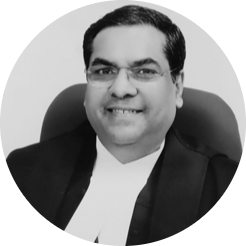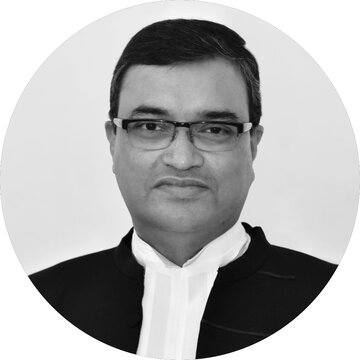Validity of Arvind Kejriwal’s Arrest
Arvind Kejriwal v Directorate of Enforcement
Citation: 2024 INSC 512
The Supreme Court will consider whether the ‘need and necessity of arrest’ is a distinct ground to challenge the validity of an arrest under Section 19 of the Prevention of Money Laundering Act 2002
Pending
Parties
Petitioner: Arvind Kejriwal
Lawyers: Senior Advocate Abhishek Manu Singhvi; Advocate Vivek Jain; Senior Advocate Amit Desai; Senior Advocate Vikram Chaudhari; Advocate Mohd. Irshad; Advocate Rajat Bhardwaj; Advocate Karan Sharma; Advocate Suchitra Kumbhat; Advocate Amit Bhandari; Advocate Sadiq Noor; Advocate Rajat Jain; Advocate Mohit Siwach; Advocate Kautubh Khanna
Respondent: Directorate of Enforcement
Lawyers: Solicitor General Tushar Mehta; Additional Solicitor General S.V. Raju, Advocate Mukesh Kumar Maroria
Case Details
Case Number: Criminal Appeal No. 2493 OF 2024
Next Hearing:
Last Updated: July 15, 2025
Key Issues
Was the arrest of Delhi Chief Minister Arvind Kejriwal valid under Section 19 of the Prevention of Money Laundering Act 2002?
Whether the “need or necessity of arrest” is a distinct ground to challenge an arrest under Section 19(1) of the PMLA?
Whether the “need and necessity of arrest” should be subject to the criteria under Section 19 or include personal grounds specific to the “facts and circumstances” of the case?
What are the parameters and facts to be taken into consideration by a Court when examining the “need and necessity of arrest”?
Case Description
On 21 March 2024, Delhi Chief Minister Arvind Kejriwal was arrested under the Prevention of Money Laundering Act 2002 (PMLA) for his alleged involvement in the Delhi liquor policy case. The liquor policy case refers to allegations by the Enforcement Directorate (ED) that private sellers were involved in creating the Delhi government’s 2021 liquor excise policy, allowing them to form cartels, in exchange for kickbacks to Kejriwal’s associates. The policy was withdrawn within a year of its release. The ED had claimed that Kejriwal was the “kingpin” of the case, and his affiliates were promised kickbacks from the relaxations granted by the excise policy. The proceeds were allegedly used to fund election campaigns in Goa’s assembly elections.
The next day, Kejriwal challenged the legality of his arrest at the Supreme Court. He subsequently withdrew the challenge and chose to appear before the Rouse Avenue Magistrate Court for his hearing scheduled on the same day. The trial court remanded him to judicial custody for six days, which was extended via successive orders by four days until 1 April 2024, and then two weeks until 15 April 2024.
On 9 April 2024, the Delhi High Court upheld Kejriwal’s arrest under Section 19 of the PMLA. He appealed the decision at the Supreme Court. On 15 April, a Division Bench of Justices Sanjiv Khanna and Dipankar Datta issued notice and scheduled the case for hearing in two weeks.
The Bench commenced arguments on 30 April 2024. Senior Advocate A.M. Singhvi argued that his arrest did not meet the criteria under Section 19 of the PMLA, as there was no material in possession of the ED to establish the “reasons to believe” that Kejriwal was prima facie guilty. Singhvi also pointed out that Kejriwal was arrested a week after the model code of conduct was put in place before the 2024 Lok Sabha Elections.
On 3 May 2024, Justice Khanna directed the parties to argue on interim bail for Kejriwal, stating that the arguments regarding the validity of his arrest were expected to be lengthy. Given the upcoming general elections, the Court was open to considering interim bail.
On 10 May 2024, the Supreme Court granted him interim bail for two weeks. He was prohibited from visiting the Chief Minister’s office, signing official papers, speaking on the case or accessing files and witnesses related to his arrest. The Order, authored by Justice Khanna, explained that the interim bail was granted to Kejriwal to facilitate his campaign for the general elections. They observed that he had no criminal antecedents and was not a “threat to society”. Finally, they directed Kejriwal to surrender on 2 June 2024, a day after voting concluded in the election.
The Court continued to hear arguments on the validity of his arrest and reserved judgement on 17 May 2024, the last working day before the Court’s summer break.
Other developments in the saga
On 20 June 2024, as the decision remained pending, a Rouse Avenue Court granted him regular bail in the ED case. The Delhi High Court granted an oral interim stay on the bail.
On 24 June 2024, a Vacation Bench of the Supreme Court of Justices Manoj Misra and S.V. Batti, stated that the High Court’s decision to reserve judgment on a stay order was “unusual”. The hearing was scheduled for 26 June 2024.
On 25 June, the High Court formally rendered its Order. On the day of the scheduled hearing, Kejriwal chose to withdraw the appeal. Minutes before the hearing, he was arrested by the Central Bureau of Investigation (CBI) in connection to corruption charges linked to the same scam.
The ED arrest
On 12 July 2024, the Bench of Justices Khanna and Datta released Kejriwal on interim bail for the second time. The Bench imposed the same restrictions as granted to him on 10 May. The Court did not answer the question on the validity of his arrest and referred it to a larger bench.
The Court framed three issues for consideration by the larger bench:
- Whether the “need or necessity of arrest” is a distinct ground to challenge an arrest under Section 19(1) of the PMLA?
- Whether the “need and necessity of arrest” should be subject to the criteria under Section 19 or include personal grounds specific to the “facts and circumstances” of the case?
- What are the parameters and facts to be taken into consideration by a Court when examining the “need and necessity of arrest”?
The Bench directed that the validity of Kejriwal’s arrest will be decided after the larger bench clarifies the issues in the reference. Kejriwal did not walk out of custody as he was arrested by the CBI in a parallel investigation
Bail in CBI Case
On 5 March 2024, a Division Bench of Justices Surya Kant and Ujjal Bhuyan reserved judgement in his plea challenging the validity of the CBI’s arrest.
On 13 September 2024, the Bench delivered a split verdict on its validity, with Justice Kant upholding the arrest and Justice Bhuyan questioning its timing. The Bench unanimously directed Kejriwal to be released on interim bail in the meantime.


